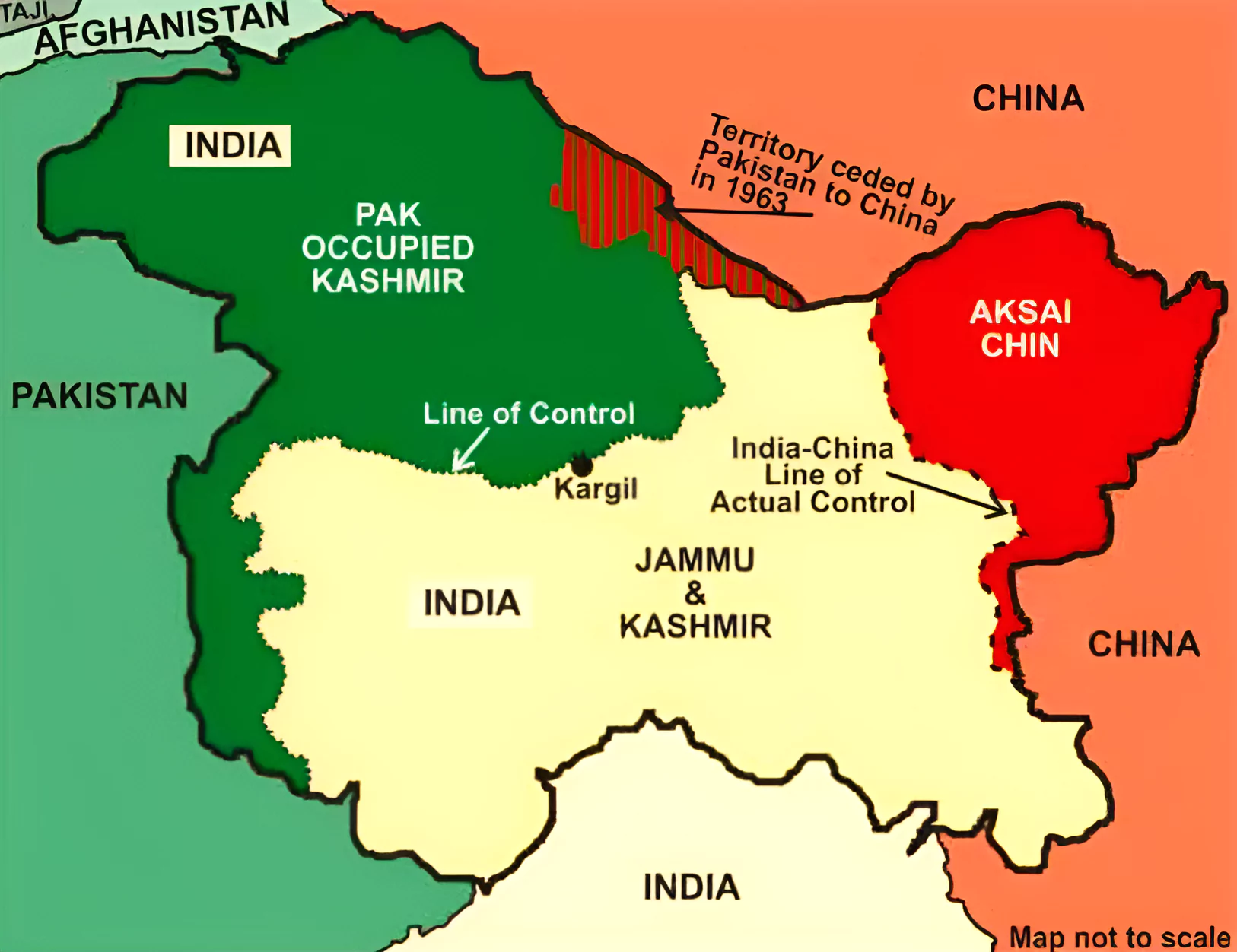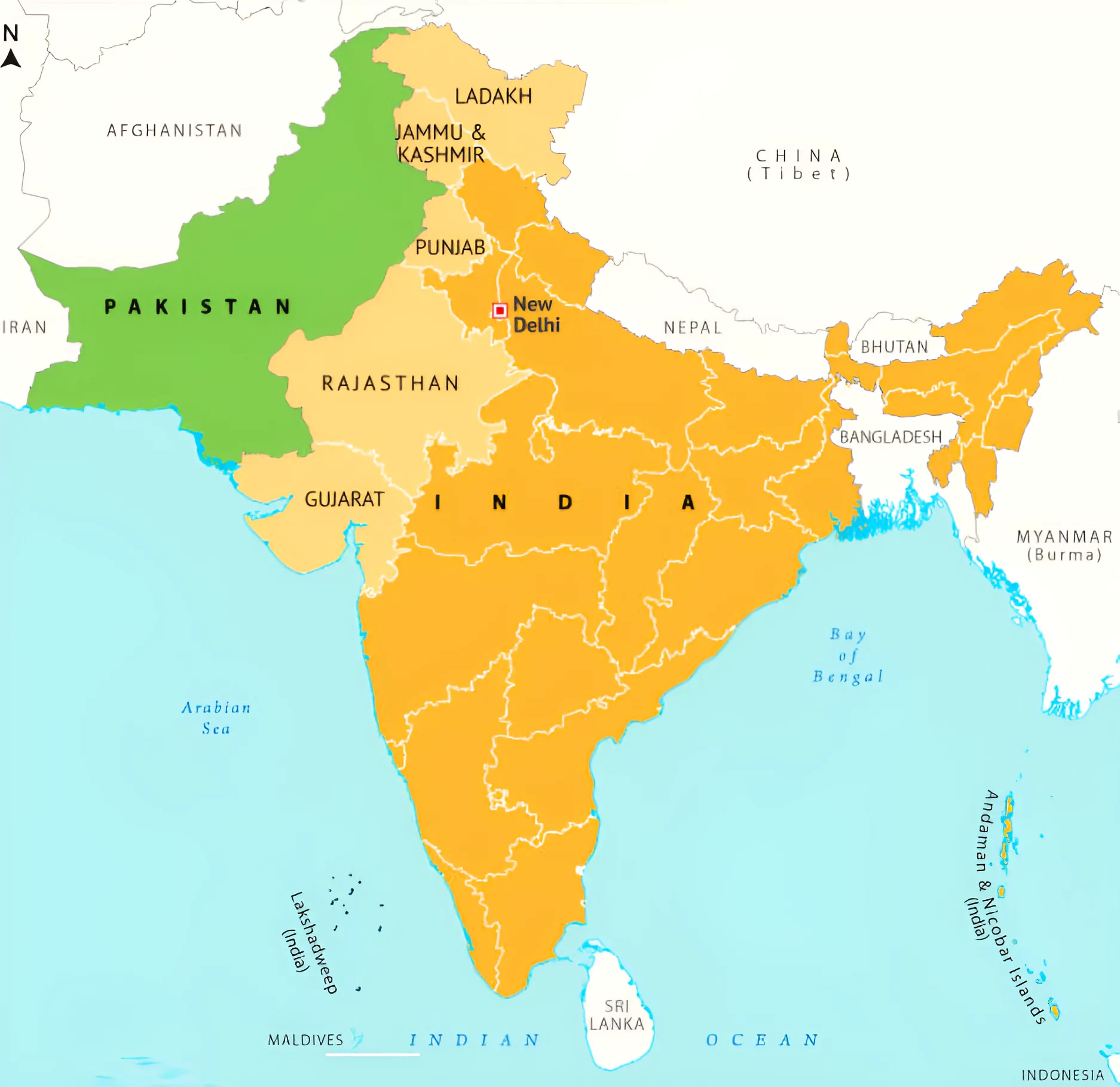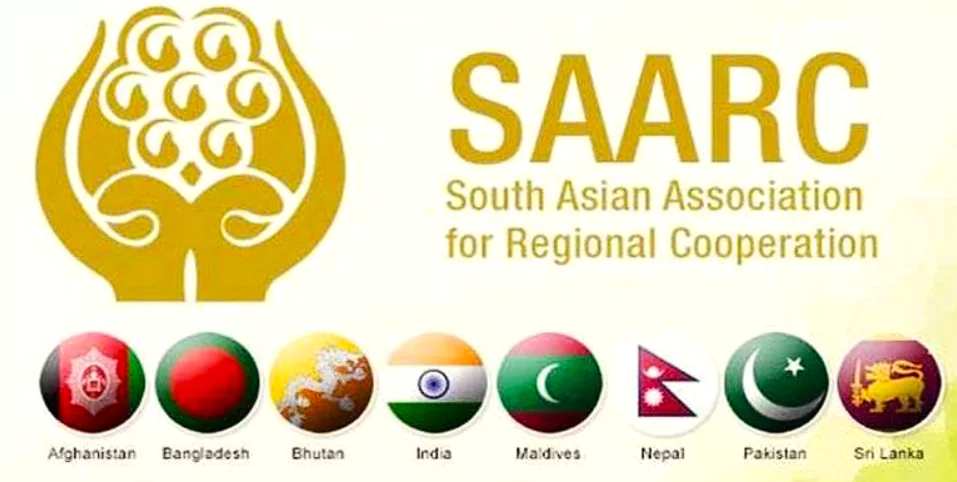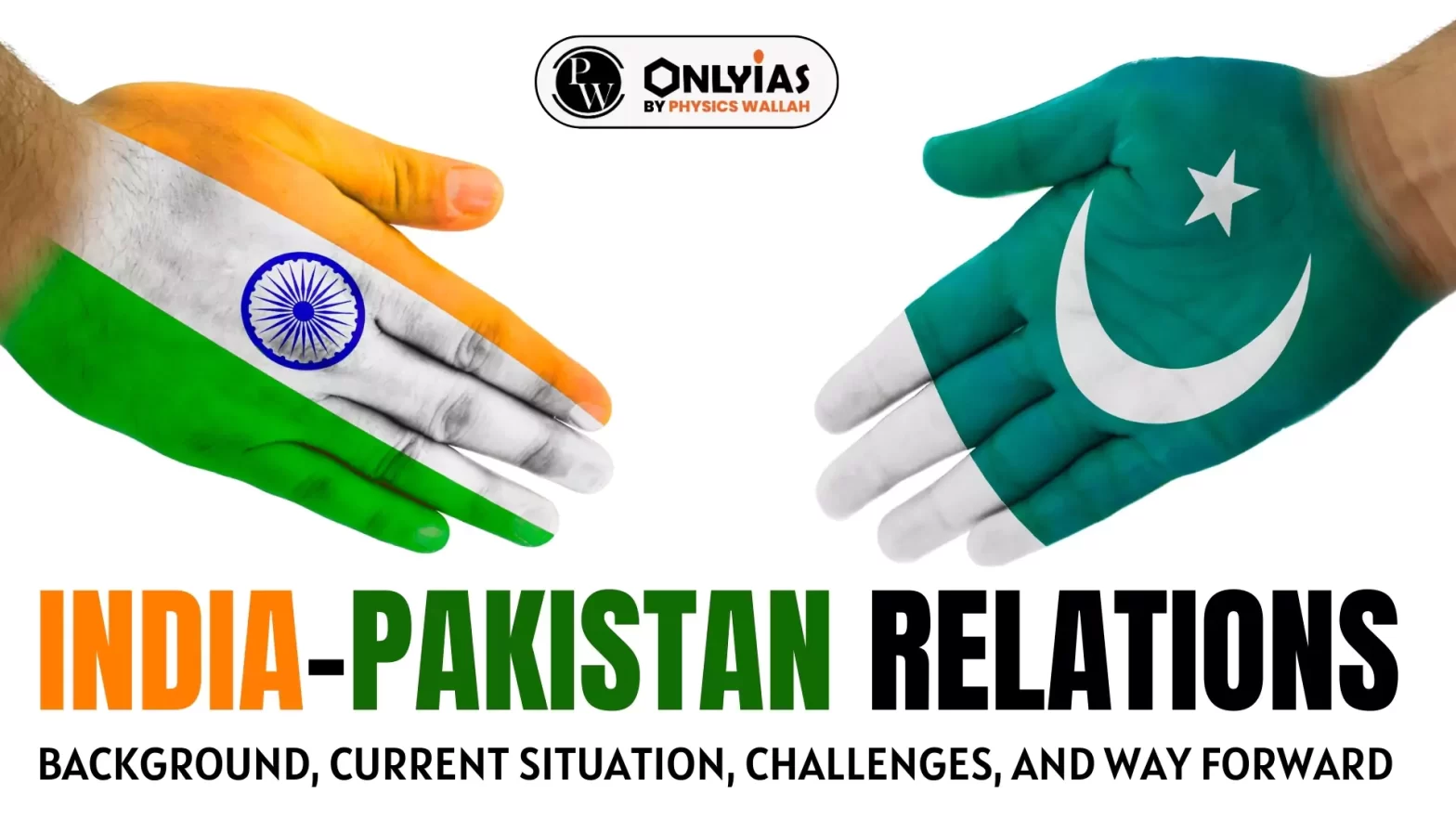Context:
This article is based on the news “Vivek Katju writes: With Pakistan poll results, Imran Khan vs General Asim Munir will continue” which was published in the Indian Express. Pakistan’s emerging election results have deepened the political crisis, with implications for civil-military relations, democracy, and the economy.
2024 Pakistan Election Results: Key Highlights
- 2024 Pakistan Election: It is a decisive moment, at a critical juncture determining Pakistan’s future trajectory.
- Unexpected Pakistan Election Results: Independents supported by Imran Khan’s Pakistan Tehreek-e-Insaf (PTI) secure significant seats, it dominated in Khyber Pakhtunkhwa provincial assembly and closely contested in Pakistan’s Punjab provincial assembly.
- Coalition Government: Pakistan’s elections returned with no party getting enough seats in the National Assembly to form a government by itself.
- Pakistan Army chief General Asim Munir has backed Sharif’s call for a coalition government. According to reports, Sharif is in talks with Peoples Party of Pakistan (PPP), to form an alliance.
- Implications of Election Verdict: It may deepen the Political Crisis and these concerns extend to international relations with India and beyond.
- Observers had argued that if Sharif returned to power, it would pave the way to some incremental improvements in India Pakistan relations, given his relative openness to working with India.
- Khan’s return to power might be a mixed picture as his government had downgraded diplomatic ties with India after the 2019 abrogation of Article 370 that had granted special status to Jammu and Kashmir.
- Military’s Historical Influence: Traditionally, Pakistan’s military has wielded direct or indirect power.
- Imran Khan’s growing political autonomy and conflicts with the military led to a power struggle.
Enroll now for UPSC Online Course
India Pakistan Relations: Background
-
India Pakistan Relations: Phase of Hostility (1947 – 2001)
- Partition Fallout and Kashmir Conflict: The partition led to massive migrations and violence. The first India Pakistan war occurred over Kashmir in 1947, resulting in Pakistan gaining control over a portion, leading to ongoing tensions. In 1949, the Karachi Agreement established a cease-fire line overseen by UN military observers and recommended a referendum in the territory, though one never materialized.
 India Pakistan Wars and Agreements: Subsequent conflicts in 1965 and 1971 led to UN interventions and agreements like the Tashkent Agreement and the Shimla Agreement. India secured the Siachen glacier area in 1984 (Operation Meghdoot).
India Pakistan Wars and Agreements: Subsequent conflicts in 1965 and 1971 led to UN interventions and agreements like the Tashkent Agreement and the Shimla Agreement. India secured the Siachen glacier area in 1984 (Operation Meghdoot).- Terrorism and Nuclear Tests: Pakistan’s support for insurgency in Kashmir, successful nuclear tests in 1998, and the Kargil War in 1999 marked this period. The attack on the Indian Parliament in 2001 intensified hostilities.
-
India Pakistan Relations: Pacification Phase (2001-2008)
-
- Peace Efforts: Despite setbacks, initiatives like the Lahore Declaration and Vajpayee’s principles aimed at improving relations.
- Composite Dialogue Process: Started in 2004, including agreements on trade and gas pipelines, showed signs of progress.
- Mumbai Attacks: However, the Mumbai terror attacks in 2008 strained relations.
-
India Pakistan Relations: Phase of Passive Relations (2008 – 2015)
-
- Low-Key Interactions: This phase saw minimal dialogue and efforts to establish trust, with discussions often stalling.
- Neighborhood First Policy: India prioritized regional cooperation, leading to some positive gestures and visits.
- Indian Prime Minister’s (PM) Visit to Pakistan: In 2015, Indian PM visit signaled a significant shift.
-
India Pakistan Relations: Phase of Renewed Hostility (2015 – 2019)
-
- Escalating Hostilities: Marked by attacks and tensions, aggravated by projects like the China–Pakistan Economic Corridor (CPEC).
- Series of Attacks: Terror attacks, including the Pulwama attack in 2019, triggered Indian Air Force’s Balakot airstrikes and diplomatic tensions.
Views of Prominent Thinkers Regarding India Pakistan Relation
- Former PM Atal Bihari Vajpayee– Friends can change but not neighbors who have to live together.
- Dilip Hiroin “The Longest August”: India Pakistan relations are tale of broken bloodline factual errors and mutual paranoia that has placed a bitter parting at the centre of destiny of subcontinent.
- Shashi Tharoor: He called Pakistan “brother enemy”, we have pursued everything but nothing seems to work. In his work ‘Pax Indica’- calls Pakistan as the biggest foreign policy challenge to India.
- Shyam Saran: India’s Pakistan policy must be based on the recognition that India Pakistan relations are deeply adversarial and likely to remain so for the foreseeable future.
- M. K. Narayanan: The long-term goal of India is to restore strategic autonomy of subcontinent, enlarge its strategic space and enhance its security options. Whereas Pakistan’s identity is often defined by opposition and rejection of India. It has short term goals and sees talks and negotiations as mere stratagem (plan used to outwit the opponent).
|
Evolution Of India’s Pakistan Policy
- Jawahar Lal Nehru: He didn’t consider Pakistan as foreign policy challenge and believed that Pakistan will automatically merge with India as its history, geography as well as destiny is linked with India.
- Indira Gandhi– She followed realist policy in India Pakistan war of 1971. However, she also suffered diplomatic defeat in Shimla Agreement by failing to solve Kashmir problem.
- Gujaral doctrine– His policy based on Panchsheel and non-reciprocity brought new freshness to India Pakistan Relations.
- Atal Bihari Vajpayee– He understood complexities and compulsion of relations well. To quote Vajpayee,’we can change history but not geography. We can choose our friends but not neighbours.’ However, India’s Pokhran test justified Pakistan’s nuclear weapons. His efforts such as Bus diplomacy and Lahore declaration also backfired in the form of Kargil war. Atal Bihari Vajpayee signed the ceasefire agreement of 2003 and the Islamabad Joint Statement of 2004, which together led to the resumption of the peace process and decline in violence in Jammu and Kashmir.
- Man Mohan Singh– M. M Singh’s Pakistan policy was based on Interdependence and functionalism. He focused on economic diplomacy to increase economic interdependence. India-Pakistan peacemaking made rapid gains in 2003-2007, under Prime Minister Manmohan Singh and President Musharraf. Path-breaking CBMs, such as trade and travel between divided Kashmir, were implemented, yielding a draft framework agreement that could have provided a lasting solution to the Kashmir conflict.
- Narendra Modi– At the end of this period in 2014, the new government unveiled its ‘Neighborhood First’ Policy which accorded priority to the South Asian countries in its foreign policy. Prime Minister level visits between the two countries started and good will gestures were shown by both sides (fishermen released by Pakistan, Pakistan PM invited to PM Modi’s swearing-in ceremony etc.). Indian PM’s visit to Pakistan in 2015 was first in a decade and was therefore a significant change in India’s approach to Pakistan. China and Pakistan signed the China Pakistan Economic Corridor (CPEC) infrastructural project in 2015 which was an affront to Indian sovereignty as the corridor passes through the PoK. Bilateral relations were dented by the series of attacks which started with Gurdaspur terror attacks in 2015 and included other major incidents like the Pathankot attack (2016), Nagrota attack (2016), Uri attack (2016), Amarnath yatra attack (2017) and finally the Pulwama attack in 2019. India responded to the Uri attack by carrying out a ‘surgical strike’ inside PoK and to the Pulwama attack by carrying out the Balakot airstrike in Pakistan and revoking the Most Favored Nation (MFN) status to Pakistan. Following the abrogation of Article 370 the diplomatic relations between the two countries have been downgraded. Pakistan launched a global diplomatic campaign to attract international support for Pakistan’s position on Kashmir.
Enroll now for UPSC Online Classes
Current Situation in Pakistan: Political Turmoil, Security and Economic Crisis
- Political Turmoil in Pakistan: Pakistan has been in a state of political upheaval since April 2022 when former Prime Minister Imran Khan was ousted through a vote of no confidence.
- Economic Crisis In Pakistan: Pakistan is grappling with a severe economic crisis, marked by soaring inflation, a depreciating currency, escalating public debt, and dwindling foreign exchange reserves.
- According to the World Bank, Pakistan’s total external debt stocks increased to $130.433 billion by end-2021 from $115.695 by end-2020.
- Despite efforts, the government has been unable to secure an IMF bailout due to its failure to implement necessary reforms, exacerbating the economic downturn.
- Security Concerns: Since the US troop withdrawal from Afghanistan, the Pakistani army has faced challenges from the Taliban-supported Tehreek-e-Taliban Pakistan (TTP), expanding its presence in Balochistan and Punjab.
- TTP has launched numerous attacks against Pakistani armed forces, leading to concerns about the army’s ability to contain the threat and maintain its previous stature.
- Social Unrest: Street protests following Khan’s removal have exposed the army’s political vulnerability, with protesters even reaching sensitive military installations.
- Resentment towards China: Rising resentment against Chinese investments, particularly in provinces crucial for the China Pakistan Economic Corridor (CPEC), has strained Pakistan-China relations.
- Out of Pakistan’s $27 billion in bilateral debt, around $23 billion is made up of Chinese loans.
- Regional Concerns: Worries arise over Pakistan descending into political turmoil, which could trigger regional instability due to its volatile borders with India, Iran, and Afghanistan.
Implications For India
- Terrorism Concerns: Pakistan harbors terrorist organizations targeting India, posing a direct threat to Indian interests. The Ministry of Commerce highlighted terrorism emanating from Pakistan as a core concern in bilateral relation.
 If this state collapses, then these terror organisations will increase their network which can directly hurt India’s interests.
If this state collapses, then these terror organisations will increase their network which can directly hurt India’s interests.
- Humanitarian Crisis and Refugee Influx: People in Pakistan struggle for basic necessities and livelihood. Contrasting conditions in India raise concerns of potential refugee influx from Pakistan.
- Impact on Trade: India’s exports to Pakistan at risk due to crisis. Bilateral trade totaled $514 million in 2021-2022, with Indian exports surpassing imports, as per Ministry of Commerce.
- Potential of Rising Chinese Influence: Deepening economic crisis in Pakistan may heighten Chinese influence. Potential implications for India-China relations, especially at the Line of Actual Control (LAC).
- Nuclear Safety Concerns: Pakistan’s possession of nuclear weapons raises concerns beyond India. Economic crisis could further lead to army takeover, raising fears of proliferation of terrorist organizations for financial gain.
Way Forward To India Pakistan Relations
- India’s Neighbourhood First Policy: Emphasizes the importance of normal relations with neighboring countries, notably Pakistan. Prioritizes peaceful bilateral resolution, advocating elimination of terrorism and violence.
- Calls for Pakistan to create a conducive environment for constructive dialogue.
- National Security Stance: India should continue to maintain resolute action against threats to security and territorial integrity.
- Religious Diplomacy: The future of India Pakistan relations requires a thoughtful engagement with the religious tradition.
- For instance, the Kartarpur Corridor was initiated in 2018, enabling Indian devotees’ access to Gurdwara Kartarpur Sahib in Pakistan.
 Turning Tragedy into Opportunity: Reports of protests in Pakistan Occupied Kashmir (PoK) raise concerns about the potential for law-and-order issues and refugee influx. However, activists report protests in PoK with readiness to join India presents an opportunity to address regional instability and potentially expand its influence.
Turning Tragedy into Opportunity: Reports of protests in Pakistan Occupied Kashmir (PoK) raise concerns about the potential for law-and-order issues and refugee influx. However, activists report protests in PoK with readiness to join India presents an opportunity to address regional instability and potentially expand its influence.- Potential for Revival of SAARC: The deadlock in fostering greater cooperation among SAARC members is often attributed to the rivalry between Pakistan and India. However, with India’s increasing global prominence and Pakistan’s decline, SAARC’s revival becomes feasible.
-
Diplomatic Opportunities For India
-
- Insists on conditions for formal talks with Pakistan.
- Requires genuine commitment to halting terrorism and resolving Kashmir issue.
- Emphasizes the importance of concrete actions to address security concerns before engaging in substantive dialogue.
Enroll now for UPSC Online Course
Soft Power Dimensions for India Pakistan Relations
- Hydro Diplomacy: Utilize the Indus Water Treaty for hydro diplomacy, ensuring non-consumptive use of western rivers.
- Cultural Diplomacy: Promote Urdu poetry, music, and art to foster people-to-people connections.
- Cricket Diplomacy: Expand cricket engagements between India and Pakistan to promote peace and cooperation.
- Economic Diplomacy: Deepen economic ties through bilateral trade and reduce import tariffs to ease tensions and foster prosperity.
- Cultural and Geographical Similarities: Leverage cultural similarities through food fairs and festivals to strengthen bonds.
|
![]() 12 Feb 2024
12 Feb 2024

 India Pakistan Wars and Agreements: Subsequent conflicts in 1965 and 1971 led to UN interventions and agreements like the Tashkent Agreement and the Shimla Agreement. India secured the Siachen glacier area in 1984 (Operation Meghdoot).
India Pakistan Wars and Agreements: Subsequent conflicts in 1965 and 1971 led to UN interventions and agreements like the Tashkent Agreement and the Shimla Agreement. India secured the Siachen glacier area in 1984 (Operation Meghdoot). If this state collapses, then these terror organisations will increase their network which can directly hurt India’s interests.
If this state collapses, then these terror organisations will increase their network which can directly hurt India’s interests.  Turning Tragedy into Opportunity: Reports of protests in Pakistan Occupied Kashmir (PoK) raise concerns about the potential for law-and-order issues and refugee influx. However, activists report protests in PoK with readiness to join India presents an opportunity to address regional instability and potentially expand its influence.
Turning Tragedy into Opportunity: Reports of protests in Pakistan Occupied Kashmir (PoK) raise concerns about the potential for law-and-order issues and refugee influx. However, activists report protests in PoK with readiness to join India presents an opportunity to address regional instability and potentially expand its influence.